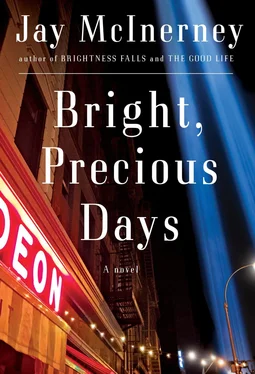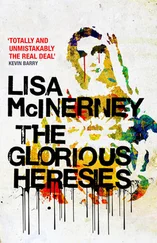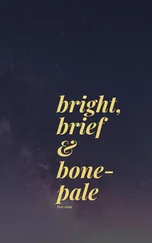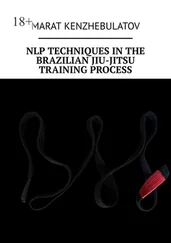“This is beginning to look like a bloodbath,” Casey said.
They were sitting on flimsy chairs near the back of a crowded room at Christie’s. The auctioneer stood at the front of the room, beneath a screen displaying the paintings on offer, the estimates, and up-to-the-minute bids. Casey had insisted that Corrine accompany her to the auction, out of a professed desire to get her out of the house, though, in fact, she didn’t want to appear unaccompanied at such an important social event, and the two walkers she sometimes relied on were otherwise engaged. Although Corrine had been initially reluctant to come along, she had an ulterior motive for relenting.
Casey was selling a small Mao by Warhol, which she’d consigned this past summer, after Tom left her, when the market was still robust. Corrine had never failed to marvel at the irony of this gaudy image of the Great Helmsman hanging on the wall of an Upper East Side town house, but in the wake of one of those violent contractions that he would have recognized as revealing the internal contradictions of capitalism, he was about to find a new, possibly even more opulent home.
The trouble started early. The third lot, a small red-and-yellow Rothko oil on paper from 1958, estimated at four to six million, hammered for three and a half. The Roy Lichtenstein self-portrait that followed likewise failed to reach the low estimate. The room was increasingly hushed. “Purchased from the artist by a distinguished collector,” Corrine read in the catalog, and remembered a moment — ten, twelve years ago — when Russell had been flipping through one from Sotheby’s, reciting the text to her, mocking the descriptions of the consigners: “ ‘From the collection of a distinguished New York gentleman, a longtime friend and former consigner,’ ” he’d read. “Wouldn’t it be nice for once to read a noneuphemistic version, like ‘From the collection of a scumbag arbitrageur whose wife is divorcing him for sleeping with the yoga instructor.’ That would make for some diverting reading,” he’d said. She hadn’t thought of that day since, Russell stretched out on the couch in the loft, reading a catalog, laughing at the prices and the faux Brit gentility of it all.
Ten minutes into the auction, most of the lots had hammered below the low estimate and five had failed to find bidders.
The depression was alleviated briefly with a manic burst of bidding on lot nineteen, when Jean-Michel Basquiat’s Untitled (Boxer) burst through the high estimate of fifteen million, as Corrine recalled meeting him once with Jeff. But the next lot failed to sell.
Meanwhile, she’d recognized many of the faces in the room, familiar from the society and business pages, although much of the bidding, tepid as it was, came from the ranks of Christie’s employees manning the phones along one wall of the room, raising their hands as they pressed receivers to their ears. The identity of these phantom buyers in Asia and Russia was the source of fevered speculation. As the auction progressed, it became clear that their mood was subdued, to say the least.
Casey was becoming increasingly agitated as her own lot approached. The announcement of a de Kooning drawing from an important private collection inspired boos in the room.
“What could anybody have against de Kooning?” Corrine asked.
“That’s one of the drawings from the collection of Dick and Kathy Fuld.”
“Who?”
“Jesus, Corrine. He was the head of Lehman Brothers, the man who single-handedly flushed it down the drain. Or at least that’s what the people who are booing believe. The Fulds have sixteen drawings in this sale, and whatever happens, they can’t lose, because Christie’s supposedly guaranteed twenty million. And no one’s really happy with that except, presumably, the Fulds.”
Casey clutched Corrine’s knee as her painting appeared on the screen with an estimate of four to six million. Corrine tried not to imagine all the productive uses for that kind of cash.
The auctioneer described the painting as a small but brilliant example of the series, recently featured in a major show at the Asia Society. “Shall we start the bidding at three million?”
The room was silent.
It was hard to feel sorry for Casey, really, though at that moment, Corrine couldn’t help doing so. She was embarrassed for her friend, even though it was unlikely that many people in the room knew the source of the painting.
“Shall we say two seven five?”
The silence persisted, punctuated by coughs and whispers.
The auctioneer brought down his gavel. “Pass.”
“I’m sorry,” Corrine said.
“Don’t feel too bad,” Casey said. “Christie’s guaranteed three million, so I’m not that upset.” She shrugged. “Shall we go?”
“Let’s just stay for another few lots. I want to see what happens with the Tony Duplex.”
“Ah, yes. First public sale since he shuffled off this mortal coil, I believe.”
Corrine nodded.
“Though I have no idea what a fucking coil is.”
“It basically meant ‘cares’ or ‘worries’ in Shakespeare’s time.”
“You’re such a nerd. Why are you so interested in Duplex?”
Corrine debated whether to reveal her interest or not, concluding that her possession of a Duplex gave her something in common with her friend. “I own one.”
“Oh, excellent. Duplex paintings are probably the only assets that have appreciated since September. The only thing better than death for the career of an enfant terrible is death by misadventure. I imagine Russell’s doing pretty well on Jack Carson’s posthumous book sales.”
“Will you please not make me feel any worse about this?”
“Why should you feel bad? You didn’t sell him the drugs.”
“Shh, here it comes.”
“Next up,” the auctioneer said, “a work by the late Tony Duplex, one of the leading neo-Expressionists of the eighties, a confederate of Keith Haring and Jean-Michel Basquiat. This large oil on canvas from 1984 is a stunning example of his work from the period when he took his art from the street to the studio. Estimated at three hundred to five hundred thousand, who will start the bidding at just two hundred and fifty thousand dollars?…Thank you. Do I hear two seventy-five?…Thank you, sir….Lorna has it with her phone bidder now at three hundred thousand. Do I hear three twenty-five?”
“In this sale, that still counts as a bargain,” Casey said.
“Three fifty to the phone bidder. Who will give me four hundred thousand?”
A man near the front in a black suit and wearing bright pink reading glasses raised his hand.
“Why would Gary Arkadian be bidding?” Corrine asked. “He was Duplex’s dealer.”
“Well, duh, he wants to set a new level for all the paintings.”
Corrine’s heart began to pound as the bidding went past half a million dollars. The painting finally hammered at $800,000, which, with the addition of the buyer’s premium, meant that someone had just paid almost a million. It was the only artwork of the night to sell for significantly more than the high estimate, the sale itself netting exactly half the low estimate — still enough, Corrine reckoned, to feed a million hungry New Yorkers for a month — inspiring much journalistic commentary about the collapse of the art market, along with the other major asset classes.
WHETHER OUT OF FINANCIAL DISTRESS or a desire not to appear extravagant in the midst of the crisis, many companies and individuals were scaling back or canceling their holiday festivities, leaving thousands of waiters and cooks and bartenders and coat checkers idle. The panhandlers, who’d almost disappeared from the city streets in recent years, seemed to multiply overnight, and the importunate year-end letters from nonprofit organizations to their patrons manifested a shrill, apocalyptic tone. When, two weeks before Christmas, a prominent money manager confessed that his business was a fifty-billion-dollar Ponzi scheme, half a dozen charities were forced to close their doors, and thousands of New Yorkers discovered that their wealth was illusory. What made this story so resonant was the widespread suspicion that it was emblematic of the economy in general, that the financial markets were houses of cards, built on sand.
Читать дальше












